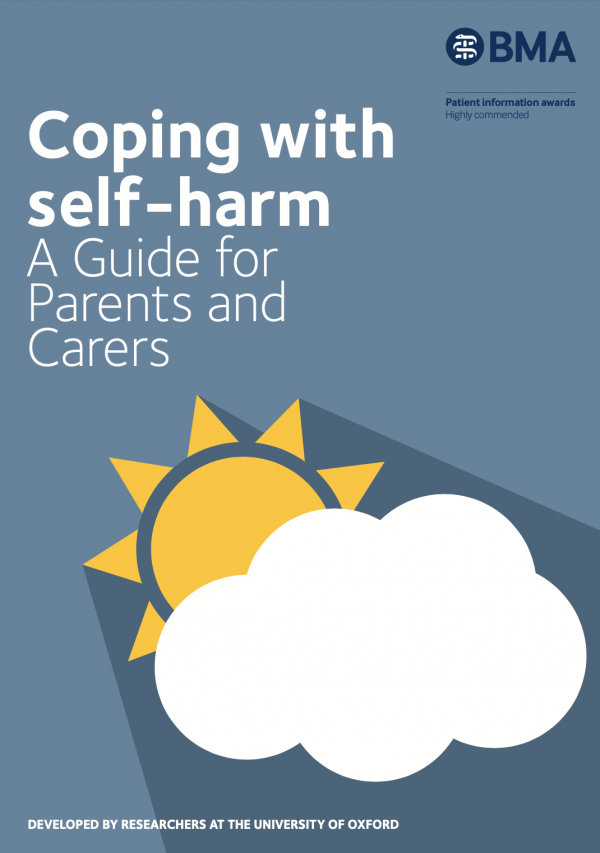- Home
- Our School
- Wellbeing and Student Support
Wellbeing and Student Support
We are excited to announce the introduction of our new Student Safeguarding, Attendance & Wellbeing Team at Herne Bay High School. As we continuously strive to provide a more supportive and nurturing environment for our students, for the new academic year we are implementing a more personalised family support system.
This team is dedicated to supporting your child in all aspects of school life, ensuring they feel safe, included, and engaged in their educational journey. The focus for this team is to safeguard and promote the welfare of students and to work closely alongside families. This allows us to build relationships to meet the needs of children, so that if problems emerge we can ensure swift action is taken to allow for the best possible outcomes academically, emotionally and personally.
Your family will be placed in to one of five houses - Botany, Minnis, Joss, Kingsgate, and Epple. Each house will have a dedicated Student Support Manager, who will be your single point of contact for wellbeing support, attendance, and safeguarding concerns.
| Student Support Manager | Telephone | ||
|---|---|---|---|
 |
Mrs H Giles | 01227 289420 | botany@hernebayhigh.org |
 |
Mrs K Johnson | 01227 289421 | epple@hernebayhigh.org |
 |
Mrs L Taupin | 01227 289422 | joss@hernebayhigh.org |
 |
Mrs D Treacher | 01227 289423 | kingsgate@hernebayhigh.org |
 |
Mrs L Sparks | 01227 289424 | minnis@hernebayhigh.org |
In the drop down menus below you will find a whole range of tips, ideas, resources and advice to support you and your family with looking after your health and wellbeing.
Mental health concerns our wellbeing, our ability to complete everyday tasks and our ability to cope with stress. We all have mental health, just as we all have physical health. If we are mentally healthy we will feel more of the positive emotions and will be more resilient and able to deal with life’s ups and downs. It is also completely normal to have dips in our mental health and these can be caused by school stress, sporting injuries, lack of a healthy lifestyle to name but a few. Mental health is a focus in society now more than ever. Each individual copes with stress in a different way – and the causes of stress will also differ too.
If you are concerned about your child’s mental health it is important to start a conversation with them. By taking twenty minutes to do an activity you will both enjoy or by going for a walk this can open the conversation in a less pressured way. Find more information on starting a conversation with your child by clicking here. Perhaps you could do some activities that fall under the NHS ‘five ways to wellbeing’. Connect with others – social relations whether within the family or virtually are critical for our wellbeing and are a fundamental need of humans. Being Active – not only are physical and mental health linked but by also finding an enjoyable activity we can benefit from being in fresh air or again by socialising with others. Taking Notice – by reminding ourselves to take notice we can become more grateful as well as to be more motivated and enjoy our surroundings. To Learn – by having enthusiasm in a topic and wanting to learn more about it it encourages good self-esteem and encourages positive use of time and achievement such as when we learn a musical instrument. To Give – participating in social and community life makes us feel better – by helping others we inevitably are also helping ourselves!
As a parent it is important to model good habits. Children often learn by copying and therefore if you are taking good care of your own mental health they likely will theirs too. Mobile phones and lack of sleep can cause a huge impact on young people’s mental health and it is important young people understand the need for good quality sleep and less screen time. When these conversations take place, it is important to make them feel secure, spend time talking about why they may feel the way they do and if you think your child needs professional help do speak to your GP.
We're aware that the pressure and stress of modern life can play heavily on the minds of young people and we'd like to ensure that our students look after their mental health. At Herne Bay High we promote positive mental health strategies and awareness through both PSHE lessons and through mentor times as well as by having a secure support network in place for every young person in the school. Staff at the school are always on hand to speak to students should they have any worries or concerns and we would encourage them to seek advice if they feel it is necessary. You child's Mentor and Student Support Manager will be able to offer help and advice and can make introductions to support services that are available in and out of School.
Emotional Wellbeing Team (EWT) are our school's wellbeing team. They are a group of external practitioners who come in to school to work directly with students who are identified of needing further support around anxiety/low mood. If you would like to refer your child to this service, please get in touch with your Student Support Manager to discuss.
Kooth is a online mental wellbeing community for young people. Access is free, safe and anonymous. In addition to the counselling service offered by Kooth, there are also articles, forums and discussion boards available to young people, with all content being age appropriate, clinically approved and fully moderated. To find out more, please visit www.kooth.com
Your diet is simply what you eat in your day to day life.
Having a good diet is essential for maintaining and healthy body, full of nutrition. But it is also important for our mental health and wellbeing as it can help us feel our best and self confidence.
A bad diet can lead to health issues, such as obesity, heart disease and some cancers. It can also make you feel down, depressed and self conscious.
The NHS Eatwell Guide (The Eatwell Guide - NHS (www.nhs.uk)) states a healthy diet should try to include:
- eating at least 5 portions of a variety of fruit and vegetables every day 5 A Day: what counts? - NHS (www.nhs.uk)
- basing meals on higher fibre starchy foods like potatoes, bread, rice or pasta
- having some dairy or dairy alternatives (such as soya drinks)
- eating some beans, pulses, fish, eggs, meat and other protein
- choosing unsaturated oils and spreads, and eat them in small amounts
- drinking plenty of fluids (at least 6 to 8 glasses a day)
The key to a good diet is balance. We all love a snack, but often our balance shifts more towards an unhealthy snack, instead of a healthy one or a nutritious meal.
A great bank of resources that offer recipes, tips and trick to encourage a healthier diet, but also has a big focus on healthier snacks is the NHS Change4Life campaign. Look here for a wealth of foody goodness: Home | Change4Life (www.nhs.uk)
Sometimes our diet gets out of hand and we can become overweight, or even obese. Unfortunately, this is becoming more and more common these days. But there are lots of things we can do about it. The NHS has a fantastic set of 12 tips to help anyone lose weight: 12 tips to help you lose weight - NHS (www.nhs.uk). Beyond changing your diet, exercise is the next best, healthiest way, you can lose weight! So why not look at our 'Physical Activity' (HYPERLINK?) section for some more great advice!
Need that extra support and nudge of encouragement? Why not try the NHS weight loss app. It can guide you through the whole process, giving hints, tips and advice from meal plans, snack ideas, activity ideas and an array of podcasts and videos to help you along the way. Check it out here: Start the NHS weight loss plan - NHS (www.nhs.uk)
If your child is struggling with their diet, and the advice above hasn't helped, please feel free to raise a concern with the schools wellbeing and year group teams by clicking here.
Please note, the 'Raising a concern' form should only be used after you have tried the information above and in instances where you are genuinely concerned for the long term impact it is having on your child's health and/or wellbeing.
Physical activity is classed as any movement or motion which requires energy and increases our heart rate. It does not mean sport, although sport is classed as physical activity. (Physical activity (who.int))
Physical activity it not a problem which affects our health and wellbeing, it is a solution.
For example physical activity is proven to reduce the risk of major illness (heart disease, cancer, diabetes and stroke) by up to 50% and lower the risk of early death by up to 30%. As well as the health benefits, physical activity is one of the most used tips by professionals for managing mental health and wellbeing issues, such as depression, anxiety, stress, low self confidence and more. (The Mental Health Benefits of Exercise - HelpGuide.org)
The problem we face is physical inactivity. This is where we are not active enough and are spending too much time being still. This can then have many negative impacts on our physical and mental health.
Nike have done research into this called 'Designed to Move' (Designed to Move - Nike News), which states due to the increasing numbers of physical inactivity in the world, for the first time in history the average life expectancy for the current generation is expected to go down, not up, by 5 years. This video paints the picture: https://youtu.be/JGskDRV4t0g
Fortunately, its not all doom and gloom. We don't need to wait for science or technology to help us solve this and to give us/your children those 5 years back. We simply need to be and encourage greater amounts of physical activity.
Easy ways to be active:
- Go for a walk. Walking is one of the easiest ways to be active. Need an added element? Why not turn it into a nature treasure hunt where you have to spot certain things like a birch tree or a squirrel!
- Go for a bike ride. Herne Bay is fantastic for having a long, flat sea front which you can cycle along for miles! Why not take a picnic for the beach
- Try gardening. That's right, gardening is actually very active and better yet, its a great way to get all the family exploring and learning about the outdoors
- Make time for a 10 minute workout. Schedule into your daily routine time for a 10 minute exercise. There are plenty out there on the internet, but here are a few to get you going: 10-minute workouts - NHS (www.nhs.uk)
- Try to complete a different fun activity each day with your family. Why not see how many of these you can tick off: Activities for Kids | Kids' Activities | Change4Life (www.nhs.uk)
- Have a splash! Swimming pools are a great way to be active. You don't need to swim lengths, just by playing in the pool you will get that heart rate up
- Want to go a little further? Why not try an online fitness class/video. The internet is full of great sessions for you to try. As a taster to see what you enjoy why not give some of these a go: Fitness Studio exercise videos - NHS (www.nhs.uk)
Other useful links:
- NHS 'Couch to 5K': https://www.nhs.uk/live-well/exercise/couch-to-5k-week-by-week/
- British Heart Foundation: 8 Great free Apps to keep you active: 8 free fitness apps | BHF - Heart Matters magazine
- Sworkit: a series of workouts specifically designed for children and young people: Sworkit
We appreciate getting motivated to be active, for some, can be extremely difficult. To help with this set yourself little goals or targets and plan out rewards that you can have afterwards. Physical activity really is something where a little, often, can go a long way.
If your child is struggling with their physical activity, and the advice above hasn't helped, please feel free to raise a concern with the schools wellbeing and year group teams by clicking here.
Please note, the 'Raising a concern' form should only be used after you have tried the information above and in instances where you are genuinely concerned for the long term impact it is having on your child's health and/or wellbeing.
Resilience is our ability to persevere despite set backs, throughout difficult times or during challenges that come our way. Not only that but it is having good emotional wellbeing and mental health too.
In PSHE lessons at school the students learn about the ABC's of resilience:
An Activating Event - an event which causes us a negative emotion - worry, sadness, anger or fear. These can be big events such as losing a loved one or small events such as a disagreement with a sibling.
Our Beliefs is another word for our self talk. We aim to get the students to recognise that all of us talk to ourselves - whether it is deciding what drink to have or to berate ourselves for not being able to do a simple task. Students are encouraged to recognise their self talk and to recognise if it is more positive or negative.
Finally the Consequence is in direct relation to the beliefs. If we think in a negative way - they consequence will more than likely be negative. If we try to be positive - we are more than likely going to have a more positive or measured outcome.
Activating Event - Student A left their maths book at home when they have maths today.
Beliefs - "My teacher is going to shout at me." "My teacher is going to give me behaviour points." "If I get behaviour points my parents might ground me."
Consequence - Student A attends the lesson and gets upset/ angry/ shouts when the teacher asks where their book is.
Throughout our resilience lessons we also try to encourage students to 'look for alternatives' and 'look for evidence'. When things go wrong can they try to see what the alternatives to the worst case scenario could be? Can they find evidence where they have done something well before? Or evidence of when a similar situation didn't turn out as badly as they expect it to? We do this by employing sentence starters in situations where we use negative self talk.
'That's not true because..." "Another way of seeing this is..." "The most likely outcome is..."
Scenario: My friend and I both auditioned for the school play. My friend got a part and I did not.
Belief 1: "I did so badly in the audition, I'm awful at acting..." Another way of seeing this is that I haven't done an audition before and I was really nervous. Maybe if I go to drama club and with more practice I will improve and will do better next time.
Belief 2: "My friend is better at everything than me..." That's not true because when we both went to football I got selected for the team but they didn't - I need to remember that everyone has their strengths and weaknesses.
Belief 3: "I'm not auditioning again - I'll never get picked..." The most likely outcome is that with hard work and practice I will improve - maybe next time I will get selected.
All of the above derives from the Penn Resilience Program which many of our staff have been trained in teaching. This was facilitated by @BounceForward as Herne Bay High School participated in The Healthy Minds Project as a sample school - read more about the Healthy Minds Project here: Healthy Minds Research Project - Bounce Forward
If your child is struggling with resilience, and the advice above hasn't helped, please feel free to raise a concern with the schools wellbeing and year group teams by clicking here.
Please note, the 'Raising a concern' form should only be used after you have tried the information above and in instances where you are genuinely concerned for the long term impact it is having on your child's health and/or wellbeing.
Being a parent is one of the most important jobs we will ever have in our lifetime, but nothing really prepares us for the overall challenges of being a parent. Many will instinctively follow how their parents raised them, but this can be problematic if your role models were not strong or you had a difficult childhood. Even those parents who feel confident and equipped can sometimes be surprised when unexpected events and behaviours occur that they find difficult to deal with.
Parenting teenagers, in particular, can be challenging. Many parents find it hard to adapt to changes in their child's behaviour as they grow up. If you’re the parent of a teenager, you’ll know that the occasional strop is all part of the experience. Teens are trying to figure out the boundaries of their independence – coming up against the rules of mum and dad from time to time is no big surprise!
However, if you find these bad moods are frequently prompting full-on screaming matches, you might want to think about how you’re approaching disagreements. Knowing how to talk to your teen can be tough. How can you talk seriously with them about the issues affecting them without them getting upset or angry? How can you make sure your conversation is effective and will really change things?
Here you'll find lots of practical advice on how to deal with common teen issues: https://www.relate.org.uk/relationship-help/help-family-life-and-parenting/parenting-teenagers
Some of the issues covered are:
- Behaviour: How to deal with changes in your teen's behaviour including handling anger and violence, setting boundaries, discipline and breaking the law.
- Family issues: Understanding their role in the family and adapting to change can be hard for teenagers. Dealing with issues such as adoption, fostering, separation and divorce.
- Communication: Knowing how to talk to your teen can be tough. There is a practical guide on how to have meaningful conversations with your son or daughter.
- School and work: Issues can arise for your teen at school or work, but they may not always come to you for advice or know how to deal with them. There are handy guides on dealing with everything from exam pressure to truancy and bullying.
- Sex and relationships: Talking to your teen about sex or who they're dating can feel awkward - get support and advice on tackling everything from sexuality to breakups.
- Alcohol and drugs: Some teens may be tempted to experiment with alcohol, drugs or smoking and as a parent that can feel frightening. Learn about what's out there, how to spot problems and how to talk to your teen if you're worried.
Young minds also offer a parent's survival guide which includes an A-Z advice on how to help your child with specific mental health conditions, and life events which might be negatively affecting their wellbeing. They also show you where you can get help.
https://youngminds.org.uk/find-help/for-parents/parents-survival-guide/#you-and-your-child
If you or your child is struggling and the advice above hasn't helped, please feel free to raise a concern with the schools wellbeing and year group teams by clicking here.
Please note, the 'Raising a concern' form should only be used after you have tried the information above and in instances where you are genuinely concerned for the long term impact it is having on your child's health and/or wellbeing.
Concerned about your child’s use of the internet or social media? Being online is now a fundamental part of growing up especially now it is so accessible through phones, tablets, laptops, computers and even gaming consoles. Of course this type of technology can provide opportunities to connect and learn but it also exposes young people to many different risks. This can often be daunting as our understanding and knowledge of these platforms can become outdated quickly.
Where as previously we could ban sites, install firewalls and employ filters – now that apps exist this is no longer sufficient in protecting our young people. Click here for internetmatters.org specific guides about privacy settings for different social media platforms that are popular among young people including; Instagram, TikTok, FaceTime, Roblox, Xbox Live and more. For the most up to date information see this blog that CEOP keep up to date specifically for parents Parent Info | From NCA-CEOP and The Parent Zone.
To find out more information about; dealing with inappropriate or explicit content, livestreaming, online gaming, parental controls as well as other eSafety issues please click here to access the NSPCC Online Safety parents resources.
It is important to maintain an open and ongoing discussion about online safety as a family. Ask your children about their use of the internet. Provide a safe space for them to feel confident to confide in you if anything ever upsets them or concerns them. Sometimes young people may find it difficult, or may not want to talk about their online lives. It’s important to reassure them that no matter what they issue may be, you are there to listen without judgement, and try to help them without confiscating their devices or punishing them. See more information from Childnet on having positive and open dialogues with young people about eSafety here.
If you’re worried about something a child or young person may have experienced online, you can contact the NSPCC helpline for free support and advice. Call them on 0808 800 5000.
The above information is based on advice, support and guidance offered by the NSPCC, internetmatters.org and Childnet. We also refer to CEOP regularly within school when talking about reporting issues online and as a school we use the thinkUknow websites.
If you are worried about something your child has experienced online and the advice above hasn't helped, please feel free to raise a concern with the schools wellbeing and year group teams by clicking here.
Please note, the 'Raising a concern' form should only be used after you have tried the information above and in instances where you are genuinely concerned for the long term impact it is having on your child's health and/or wellbeing.
